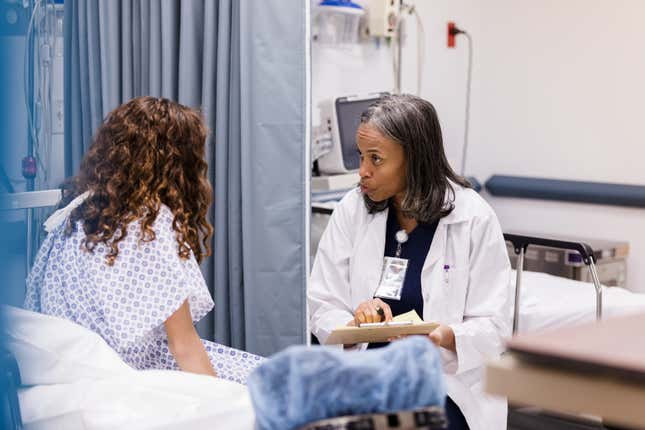Sexual Assault Survivors Are Being Billed Thousands for Emergency Care
By getting "these bills, they’re being told they’re responsible for what happened, when they’re not,” researcher and abortion provider Sam Dickman said.
JusticePolitics

A new study published Wednesday in the New England Journal of Medicine found that out of about 112,000 sexual assault survivors who sought emergency care after their assaults, 17,000 faced charges averaging nearly $4,000. The study, first shared with Jezebel this week, analyzed national data from almost 36 million visits to the emergency room in 2019, and found costs for sexual assault-related visits averaged $3,551 for all victims, while pregnant victims faced even higher average charges: $4,553.
It’s an appalling revelation at a time when the overturning of Roe v. Wade has upended the health care system for pregnant people, survivors, and of course, pregnant survivors. The study’s findings are also a reminder of the extensive financial ramifications that can follow sexual assault, which also include losing jobs and income; being forced to drop out of school; and facing costly defamation lawsuits—on top of the exorbitantly high medical bills, this study revealed. A separate study found rape costs victims more than any other crime, with total estimated costs reaching $127 billion per year. Years after experiencing abuse, women have health care costs that are 19% higher than costs for women who haven’t been abused.
Samuel Dickman, one of the researchers and an abortion provider who’s worked with a number of patients who have survived sexual violence, told Jezebel a high medical bill in itself can be retraumatizing. “They’re victimized when they’re assaulted, and then, essentially, by being asked to pay these bills, they’re being told they’re responsible for what happened, when they’re not,” Dickman said.
-

-

-

-

-

-

-

-

-

-

-

-

-

-

-

-

-

-

-

-

-

-

-

-

-

-

-

-

-

-

-

-

-

-

-

-

-

-

-

-








































